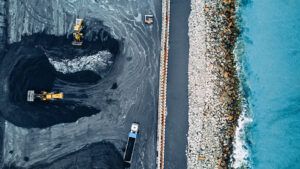New findings from the WWF Sustainable Financial Regulations and Central Bank Activities (SUSREG) Tracker show that although some central banks and financial supervisors are attempting to “green” their financial regulation and supervision, significant gaps remain.
More banks and supervisors focus on climate and neglect broader environmental and social impacts, such as biodiversity loss and its wider impacts. This gap is largest in high income countries that have the largest GHG emissions and are rich in biodiversity.
WWF used the SUSREG Tracker to measure the progress on climate, environmental and social risk integration across central banking, financial regulation and supervision activities. This analysis covers 47 regions which represent 88% of the global GDP, including over 70% of global GHG emissions.
Figures confirm that under one in five (18%) central banks integrate climate-related risks into their policies, while nearly 70% of high income countries have failed to deliver adequate climate and environmental banking supervision policies.
Despite the growing requirement for financial institutions to disclose their climate transition plans, more than of half countries with net-zero targets (20 out of 37) have weak climate banking supervision policies.
Consequently, building on WWF’s Roadmap for a climate safe and nature positive economy, the NGO urged central banks, financial supervisors and regulators to:
- Publish transition plans for a low-carbon and nature-positive economy that are transparent and measurable
- Apply a precautionary approach using all micro and macro supervision tools
- Utilise their ‘monetary policy toolkit’ to address environmental and social risks whilst phasing-out environmentally harmful activities from their portfolios
- Set higher capital requirements to financial institutions lending money to highly pollutant companies such as oil and gas expansion
Following from these results, WWF also shared their reaction to the significant moment countries at COP28 agreed to transition away from fossil fuels.
While this marks progress from previous COP conferences, concerns remain as countries failed to commit to a full fossil fuel phase out.
Chief executive of the UK office of WWF Tanya Steele, said: “The agreement to transition away from fossil fuels is a watershed moment and vital if we are to keep the Paris Agreement target of 1.5 degrees within reach. But we are hanging onto the edge of a cliff and dangerous distractions such as “transitional fuels” and large-scale carbon capture and storage should not be part of a future where people and nature thrive.
“We will hold governments to account to accelerate a fast, full, fair and funded shift away from coal, oil, and gas. The UK government must now deliver on their net zero promises at home, otherwise their warm words on ending fossil fuels in Dubai will be meaningless.”
WWF global climate and energy lead and COP20 president Manuel Pulgar-Vidal, added: “The earth is down but not out, as countries agree to transition away from fossil fuels, but fall short of consensus on the full phase out of coal, oil and gas at COP28. Nevertheless, a decision to transition away from fossil fuels is a significant moment. After three decades of UN climate negotiations, countries have at last shifted the focus to the polluting fossil fuels driving the climate crisis. This outcome must signal the beginning of the end for the fossil fuel era.
“It is unfortunate that with the inclusion of the word ‘unabated’, the outcome suggests there is a considerable role for dangerous distractions such as large-scale carbon capture and storage and ‘transitional fuels’. This is not the case. For a liveable planet we need a full phase out of all fossil fuels.
“The Global Stocktake is clear that eight years on from the Paris Agreement, we are still way off course to limit global warming to 1.5 degrees and avert the worst impacts of the climate crisis. In this critical decade, all countries must enhance the ambition and implementation of climate action. It is vital that countries work now to transform their energy systems and replace polluting fossil fuels with clean and cheaper renewable energy, such as wind and solar, at an unprecedented speed and scale.”
